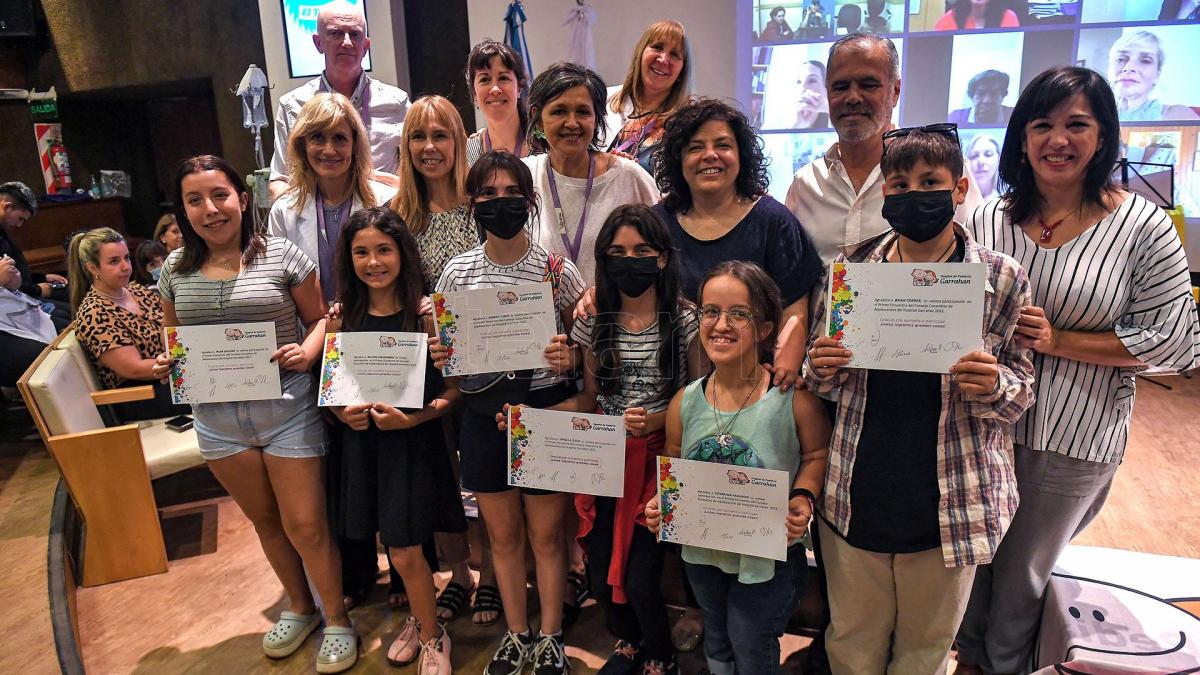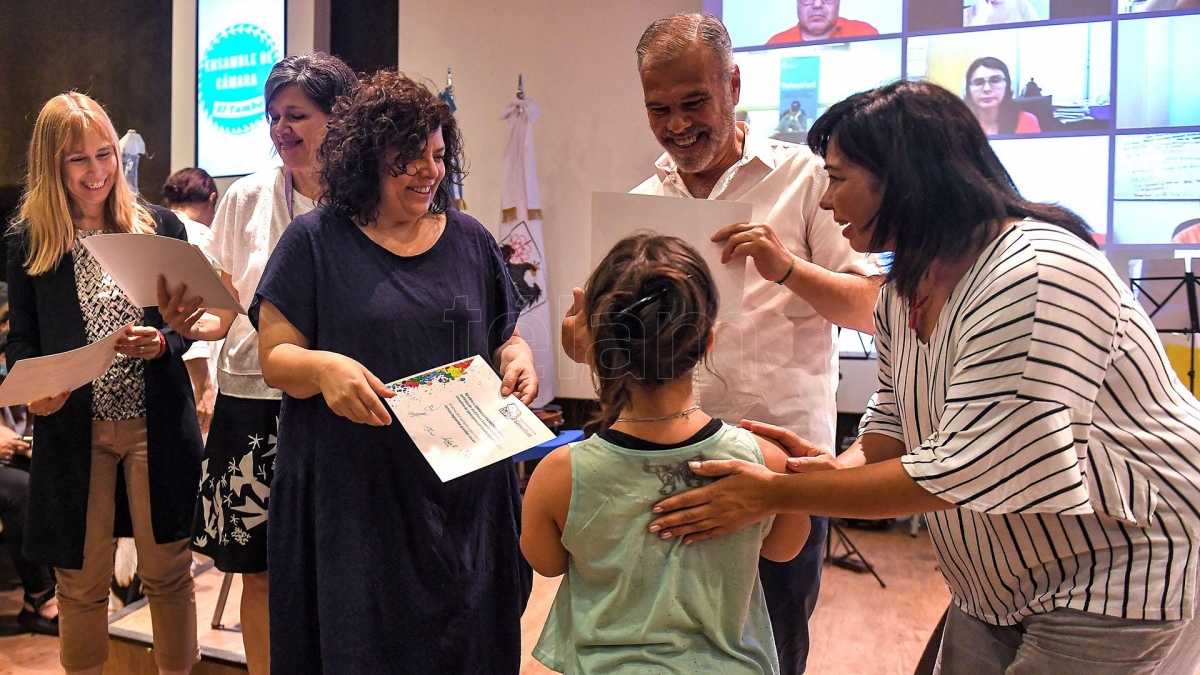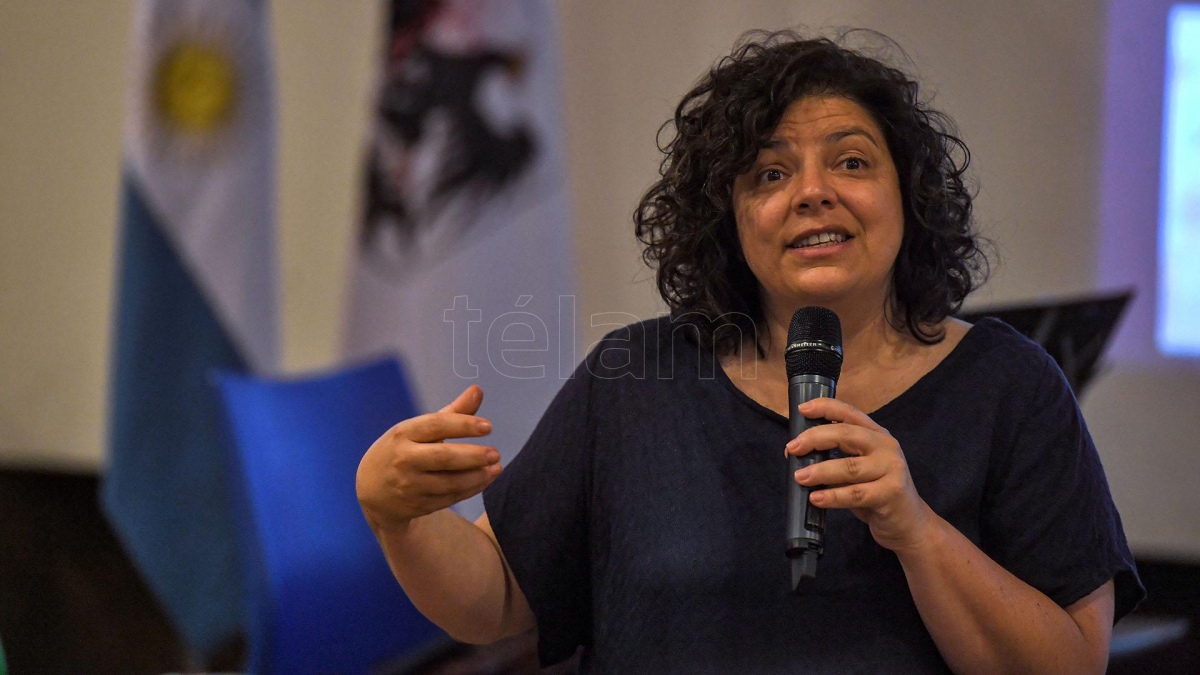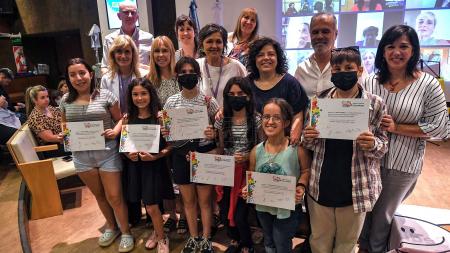 Minister Vizzotti and the boys at the Carrahan. (Photo: Victor Carreira)
Minister Vizzotti and the boys at the Carrahan. (Photo: Victor Carreira)
The Garrahan Hospital presented this Monday the first Adolescent Advisory Council in a pediatric center in Argentina, an unprecedented area of participation that, they announced, will be a “space of support between ourselves”, where they will be able to “explain how each adolescent went through their journey in the hospital” and “carry out the work together with the adults”.
The event, which was held on the second floor in the main hall of the health center, located in the Parque Patricios neighborhood of Buenos Aires, was attended by Carla Vizzotti, Minister of Health; Esperanza Paciaroni, member of the Advisory Council for Adolescents; Patricia García Arrigoni, executive medical director; Gabriela Bauer, president of the Garrahan Board of Directors; and Gabriel Lerner, Secretary of Childhood, Adolescence and Family (Senaf) of the Ministry of Social Development.
In addition, the El Tambo orchestra, from La Matanza, which is part of the Social Program for Children’s and Youth Orchestras of the Ministry of Culture, participated.
At the time of her presentation, Minister Vizzotti affirmed that “we have the absolute conviction that civil society, who are the beneficiaries of public policies, must have a voice, because, no matter how goodwill those of us who are sitting temporarily in a place of decision, there is no possibility of having the experiences of those who are in that place”.
Likewise, Vizzotti added that “putting oneself in the place of another” is a very relevant attitude and that “this step that Garrahan took is very important”.
The Advisory Council will be made up of eight advisors over the age of 12 proposed by different services of the Hospital, which is celebrating 35 years as the country’s reference pediatric center in public health, free of charge and of high complexity.
Progressively, the group will open new calls until reaching a maximum of 11 directors and a coordinator, in accordance with the tentative guidelines that must be approved by the Council itself.
In a first instance, meetings will be quarterly to follow up on the issues in the health care, infrastructure and activity design commissions, which will later make suggestions to the Hospital.
 “This step that Garrahan took is very important,” said the minister. .(Photo: Victor Carreira)
“This step that Garrahan took is very important,” said the minister. .(Photo: Victor Carreira)
“The idea is to implement a public policy that institutionalizes and guarantees the right to protection of children and adolescents and from there ask ourselves how guarantee the active participation of people who have undergone health processesmostly long, and which are at this moment stable enough to share and question us as an institution about where innovations and improvements should take place”, Gabriela Bauer told Télam.
The president of the Board of Directors of Garrahan stated that, the majority of Council participants will be patients between the ages of 13 and 18 who are still receiving some form of care at the Hospital“the idea is that they have traveled long enough to have that experience.”
“What we have taken into account is that they have support and coordination made up of pediatricians, social workers, psychiatrists and psychologists from the mental health area to be able to better channel what they see and hear,” he added.
Esperanza Paciaroni, patient and Board memberexpressed that the care inside the Hospital is excellent and that he had “a very nice experience”.
“At the medical level there is nothing to improve. The support of each doctor and each sector is very good,” he added.
In dialogue with Télam, the 18 year old patient stated that “there are teenagers who want to participate and don’t know how. Our voice is very important, even if it is a space that is just beginning, it will be good if other pediatric or adult hospitals open these doors to spaces for participation”.
 The Advisory Council will be “a space for support and relationship between patients so that each one can express how they went through their career in the Hospital. (Photo: Victor Carreira)
The Advisory Council will be “a space for support and relationship between patients so that each one can express how they went through their career in the Hospital. (Photo: Victor Carreira)
The invitation to participate in the Advisory Council for Adolescents came to her through one of her doctors, who contacted her with the Director of Patient Care, where they told her that they were forming a Council. “Since I am part of the Advisory Council of Senaf for Adolescents, I told you a little about my experience,” she said.
Regarding the Council, he hopes that it can be create “a space for support and relationship between patients so that each one can express how they went through their trajectory in the Hospital.
Finally, he highlighted the importance of working together with adults: “It is said that adolescents want to work alone and that we go against everything, but the truth is that we don’t. The idea is to work together,” he concluded.


